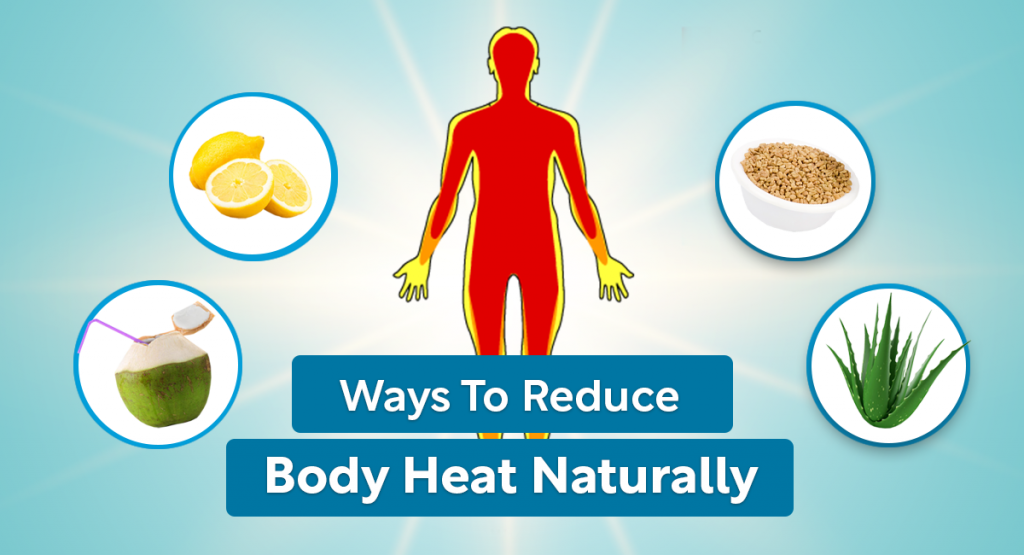Heat stress is a condition due to an elevated temperature of your body. It occurs when your body fails to cool itself and overheats due to extreme weather and other conditions. It can also lead to heat prostration, which is a general term for heat-induced illnesses. This might include heat cramps, heat exhaustion, and heat stroke.
Signs of excessive heat in the body brings down the efficiency and performance of your organs. Increased body heat is known as hyperthermia, which can be really harmful if left untreated. Causes could be poor ventilation, exposure to heat, wearing warm clothes, etc. The effects of hyperthermia include dehydration, redness, headaches and even sunburns. In order to prevent yourself from hyperthermia it’s necessary to learn how to reduce body heat.
Excessive body heat, or heat stress happens when your body fails to cool itself properly. There are numerous causes of heat stress in human beings, but we’ll cover only a few here.
The summer season is a very dangerous time for your health. Humans have always adapted to the changes in nature, but we are still not able to withstand the constant rise of temperature. Heatstroke and heat prostration are some of the most common health disorders related to high temperature. Let’s know more about this topic and learn some tips on how to cool down the body by reducing body heat.
Signs of excessive heat in the body brings down the efficiency and performance of your organs. Increased body heat is known as hyperthermia, which can be really harmful if left untreated. Causes could be poor ventilation, exposure to heat, wearing warm clothes, etc. The effects of hyperthermia include dehydration, redness, headaches and even sunburns. In order to prevent yourself from hyperthermia it’s necessary to learn how to reduce body heat.
Hot days can cause the body to lose excess water and other electrolytes, leading to fatigue. People who drink alcohol that has been warmed by the sun may have a greater risk of developing cardiovascular problems. This is because drinking even small amounts of alcohol in hot weather can increase heart rate and blood pressure. Heat increases stress, raising the risk of anxiety, depression and insomnia. When you’re sweating heavily after exercise — in a hot tub or sauna, for example — you lose water and important minerals such as sodium and magnesium. Drinking too much alcohol can affect temperature regulation ability, causing excessive sweating in some people.
Feeling dehydrated can cause dizziness, which may make you feel off balance and unsteady. Dehydration can be exacerbated in the summer months due to higher temperatures which are also expected to rise significantly as a result of climate change.
There are various ways to reduce body heat during summer and the best solution is eating a balanced diet. The following are some tips to control body heat: Eat a balanced diet, drink lots of filter water, avoid excess alcohol and caffeine, wear loose, light colored clothing made of breathable fabrics, exercise in cooler parts of the day (early morning or evening), avoid spicy foods, avoid placing ice directly on the skin.
People with anxiety experience feelings of uneasiness, dread and panic. Anxiety disorders are among the most common mental disorders in the United States. Some people also have physical symptoms, like sweating, dizziness and rapid heartbeat. If left untreated, anxiety can cause long-term problems. Severe cases can lead to a wide range of issues such as trouble sleeping or eating to social avoidance and isolation.
Read More: Anxiety vs. Depression: What Are the Differences?

